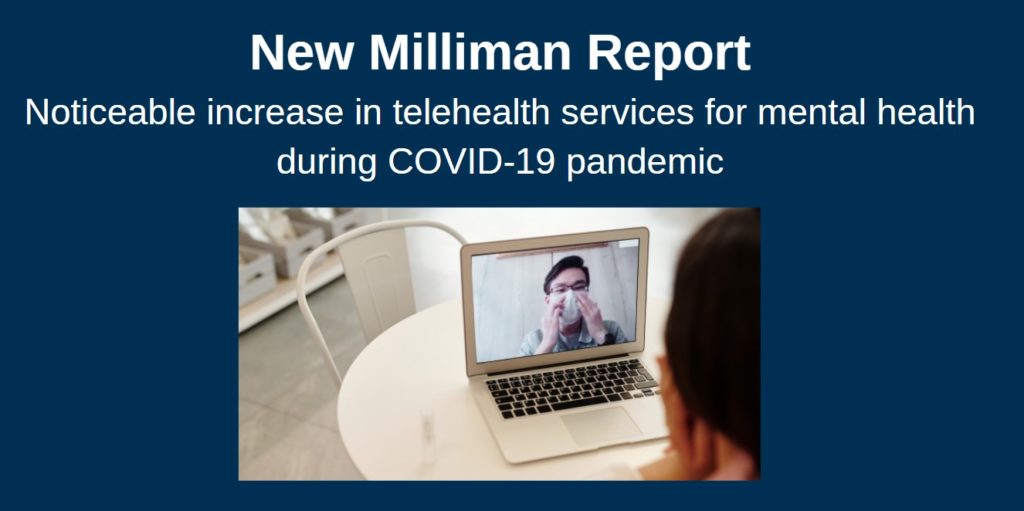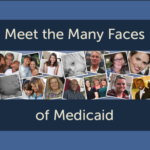A new report by Milliman sheds light on the utilization of mental health services throughout the COVID-19 pandemic.
This newly released analysis of 12.5 million individuals’ commercial insurance, Medicaid Managed Care, Medicare fee-for-service (MSSP), and Medicare Advantage claims between January-August 2019 and January-August 2020 is one of few reports seeking to understand how mental health care was impacted by COVID-19 in a similar – and, at times, different – way to physical health care.
Key findings from the report show that:
- Like utilization for non-Covid-related physical health care, utilization of mental health services dropped significantly when COVID-19 took hold in the United States in early 2020. However, in evaluating those dips, the use of care involving mental health conditions fell less than other kinds of care.
- People with a mental health diagnosis were less willing to forego care during COVID-19’s peak. When restrictions began to be lifted in June 2020, visits to primary care offices by those with a mental health diagnosis actually rose above 2019 levels.
- With the exception of Medicare beneficiaries, when remote health care utilization was factored into individuals’ overall behavioral health care utilization numbers, there were primarily year-over-year increases across all insured populations. Mental health care utilization increased among the Medicaid population between 2019 and 2020, and only decreased by 1% in March and May among the commercially insured population.
“When Covid-19 forced people to press pause on receiving non-emergent care, there was a lot of conversation about the impact delayed care would have on individuals unknowingly living with cancer, cardiac, or chronic conditions,” said Benjamin F. Miller, PsyD, Chief Strategy Officer, Well Being Trust.
“There was noticeably less conversation about the impact that this would have on the millions of Americans confronting mental health and addiction issues, for whom there were already barriers to care even before the global pandemic.”
Read the full report here.






